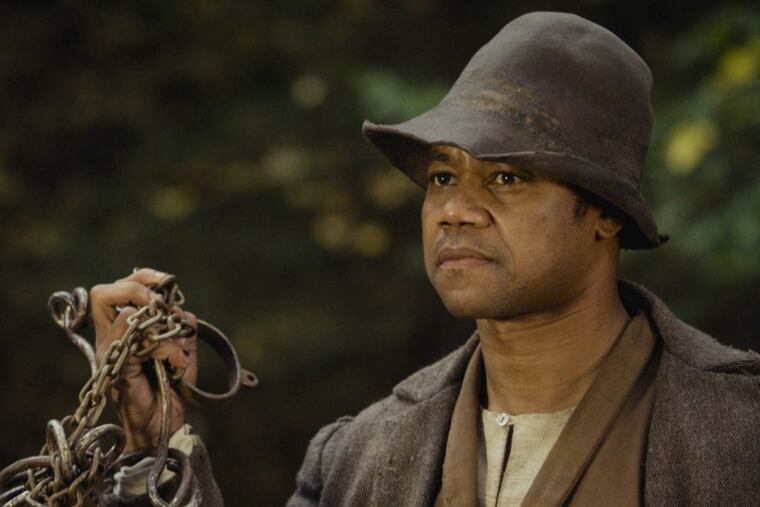'Freedom': Schmaltzy drama about slavery
In an early scene from the period film Freedom, a bounty hunter hired to retrieve runaway slaves stops for a moment to stare at one of the coins he has been paid for the job.

In an early scene from the period film Freedom, a bounty hunter hired to retrieve runaway slaves stops for a moment to stare at one of the coins he has been paid for the job.
The silver piece bears a portrait of Lady Liberty, the word Liberty elegantly circling her head.
"In God we trust" appears by her foot.
That scene, its simplistic symbolism screaming at the viewer, fairly sums up Freedom, a schmaltzy, deeply sentimentalized drama about American slavery and the rise of the Underground Railroad.
Freedom has two interwoven narratives. The first follows a family of runaway slaves in 1856 Virginia, who are led north by brave Railroad volunteers, including a deeply pious local Quaker named Mr. Garrett (Michael Goodwin).
Adira (Phyllis Bash), the aged matriarch, is full of kind words and wisdom, as is her quiet grandson, Jim (Aaron Bantum). Adira's son, Samuel (Cuba Gooding Jr.), is an angry, bitter man who can't understand Adira and Garrett's faith. His wife, Vanessa (Sharon Leal), is deeply traumatized and afraid. She's in a double bind because the family's owner, wealthy farmer Jefferson Monroe (David Rasche), also is her father, having raped her mother when she was a teenager. For his part, Monroe is a shrewd businessman, all too aware that the end of slavery would cripple the country's economy.
They are hunted by the stoic Plimpton (William Sadler), a famous tracker whose only failing, as Monroe warns him, is that he is prone to compassion and Christian charity.
The second story takes us nearly a century further back, to Africa and the slave ship captained by the famous seaman, songwriter, and reformed sinner John Newton, as he sets off on the voyage that will open his eyes to the insidious evils of slavery - and inspire him to compose "Amazing Grace."
Obviously well-meaning, if poorly executed and unsophisticated, Freedom is a faith-based musical of sorts, carpeted from beginning to end with songs and hymns - some delivered with breathtaking beauty - that seem to soothe away the misery and suffering portrayed on-screen. (Baritone Jubilant Sykes is resonant as Newton's interpreter and guide Ozias, himself a slave.)
Freedom, which suffers from overboiled soap-opera performances and amateurish costumes and props, plays like a comic book for teens. The film may trouble some viewers because it's not really about the slaves it portrays, but about the white people who either persecute or help them. There's nothing wrong with telling the story of how white America had its consciousness raised to the plight of slaves, but Freedom seriously shortchanges its African American characters.
The black characters, slaves all, seem almost incidental to the action. The film doesn't bother to give them real depth, instead defining them entirely by their reactions to their white benefactors. Samuel is ungrateful. Adira is filled with admiration and song. Ozias is a fatalist who justifies his refusal to be incensed by slavery with sermons about the overall wickedness of man. Then he sings.
I'm sure I'd love the sound track CD.
The rest? The discard pile.
EndText
215-854-2736